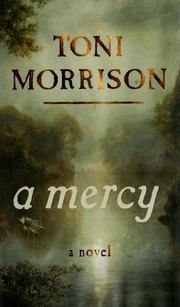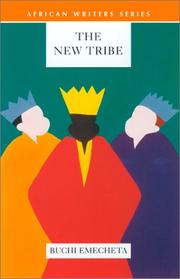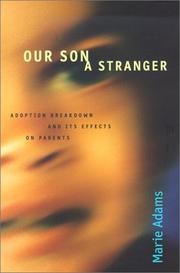| Listing 1 - 10 of 20 | << page >> |
Sort by
|

ISBN: 1501724118 0801438985 Year: 2002 Publisher: Ithaca ; London : Cornell University Press,
Abstract | Keywords | Export | Availability | Bookmark
 Loading...
Loading...Choose an application
- Reference Manager
- EndNote
- RefWorks (Direct export to RefWorks)
Transracial adoption is one of the most contentious issues in adoption politics and in the politics of race more generally. Some who support transracial adoption use a theory of colorblindness, while many who oppose it draw a causal connection between race and culture and argue that a black child's racial and cultural interests are best served by black adoptive parents. Hawley Fogg-Davis carves out a middle ground between these positions. She believes that race should not be a barrier to adoption, but neither should it be absent from the minds of prospective adopters and adoption practitioners. Fogg-Davis's argument in favor of transracial adoption is based on the moral and legal principle of nondiscrimination and a theory of race-consciousness she terms "racial navigation." Challenging the notion that children "get" their racial identity from their parents, she argues that children, through the process of racial navigation, should cultivate their self-identification in dialogue with others. The Ethics of Transracial Adoption explores new ground in the transracial adoption debate by examining the relationship between personal and public conceptions of race and racism before, during, and after adoption.
Interracial adoption --- Mixed race adoption --- Trans-racial adoption --- Adoption --- Intercountry adoption --- Race relations --- Moral and ethical aspects --- Transracial adoption

ISBN: 9780307264237 0307264238 Year: 2008 Publisher: New York Knopf
Abstract | Keywords | Export | Availability | Bookmark
 Loading...
Loading...Choose an application
- Reference Manager
- EndNote
- RefWorks (Direct export to RefWorks)
African American girls --- Interracial adoption --- Racism --- Mixed race adoption --- Trans-racial adoption --- Adoption --- Intercountry adoption --- Race relations --- Transracial adoption --- African American girls - Fiction --- Interracial adoption - Fiction --- Racism - Fiction
Book
ISBN: 144268612X 9781442686120 9781442610194 9781442698437 1442698438 Year: 2010 Publisher: Toronto [Ont.] : University of Toronto Press,
Abstract | Keywords | Export | Availability | Bookmark
 Loading...
Loading...Choose an application
- Reference Manager
- EndNote
- RefWorks (Direct export to RefWorks)
International adoptions are both high-profile and controversial, with the celebrity adoptions and critically acclaimed movies such as Casa de los babys of recent years increasing media coverage and influencing public opinion. Neither celebrating nor condemning cross-cultural adoption, Karen Dubinsky considers the political symbolism of children in her examination of adoption and migration controversies in North America, Cuba, and Guatemala.Babies Without Borders tells the interrelated stories of Cuban children caught in Operation Peter Pan, adopted Black and Native American children who became icons in the Sixties, and Guatemalan children whose 'disappearance' today in transnational adoption networks echoes their fate during the country's brutal civil war. Drawing from extensive research as well as from her critical observations as an adoptive parent, Karen Dubinsky aims to move adoption debates beyond the current dichotomy of 'imperialist kidnap' versus 'humanitarian rescue.' Integrating the personal with the scholarly, Babies Without Borders exposes what happens when children bear the weight of adult political conflicts.
Intercountry adoption --- Interracial adoption --- Mixed race adoption --- Trans-racial adoption --- Adoption --- Race relations --- International adoption --- Transnational adoption --- Transracial adoption --- America. --- Americas --- New World --- Western Hemisphere
Book
ISBN: 1555538495 9781555538491 9781555535032 Year: 2001 Publisher: Boston
Abstract | Keywords | Export | Availability | Bookmark
 Loading...
Loading...Choose an application
- Reference Manager
- EndNote
- RefWorks (Direct export to RefWorks)
The remarkable and inspiring true story of a couple who adopted twelve children, ten of them considered ""unadoptable"" because of mixed racial parentage.
Interracial adoption --- Mixed race adoption --- Trans-racial adoption --- Adoption --- Intercountry adoption --- Race relations --- Doss, Helen Grigsby --- Doss, Carl M. --- Doss, Helen --- Family. --- California --- Transracial adoption

ISBN: 0435912046 Year: 2000 Publisher: Oxford Heinemann
Abstract | Keywords | Export | Availability | Bookmark
 Loading...
Loading...Choose an application
- Reference Manager
- EndNote
- RefWorks (Direct export to RefWorks)
Adopted children --- Clergy --- Interracial adoption --- Nigerians --- Ethnology --- Mixed race adoption --- Trans-racial adoption --- Adoption --- Intercountry adoption --- Race relations --- England --- Nigeria --- Angleterre --- Anglii︠a︡ --- Inghilterra --- Engeland --- Inglaterra --- Anglija --- England and Wales --- Transracial adoption

ISBN: 1282860615 9786612860614 0773570381 9780773570382 9781282860612 9780773524002 0773524002 Year: 2002 Publisher: Montreal
Abstract | Keywords | Export | Availability | Bookmark
 Loading...
Loading...Choose an application
- Reference Manager
- EndNote
- RefWorks (Direct export to RefWorks)
In 1973 Marie and Rod Adams, brimming with idealism and keenly aware of the plight of disadvantaged aboriginal children, adopted Tim, a young Cree boy, two and one half years old. Tim began displaying severe behavioural problems almost immediately, problems that, despite their efforts to find help, only became worse over the years. He left home at the age of twelve and died on the streets when he was twenty-one. Devastated by their loss, the Adams began to search for answers as to why things had gone so horribly wrong. In Our Son, a Stranger Marie Adams describes five white couples whose adoptions of native children failed to meet their expectations. Using her own experiences as background, she casts a critical eye on the "Sixties Scoop" when governments actively encouraged the adoption of native children by non-native parents - an estimated 95 per cent of such adoptions failed - and discusses why the special issues raised by all trans-racial adoptions need to be carefully considered.
Interracial adoption --- Adoptive parents --- Indian children --- Adoption interraciale --- Parents adoptifs --- Enfants autochtones --- Adopting parents --- Parents --- Mixed race adoption --- Trans-racial adoption --- Adoption --- Intercountry adoption --- Race relations --- Children, Indian --- Indians --- Children --- Psychology. --- Psychologie. --- Transracial adoption
Book
ISBN: 1610447069 9781610447065 0871548755 9780871548757 0871548704 9780871548702 Year: 2011 Publisher: New York Russell Sage Foundation
Abstract | Keywords | Export | Availability | Bookmark
 Loading...
Loading...Choose an application
- Reference Manager
- EndNote
- RefWorks (Direct export to RefWorks)
Transnational adoption was once a rarity in the United States, but Americans have been choosing to adopt children from abroad with increasing frequency since the mid-twentieth century. Korean adoptees make up the largest share of international adoptions- 25 percent of all children adopted from outside the United States -but they remain understudied among Asian American groups. What kind of identities do adoptees develop as members of American families and in a cultural climate that often views them as foreigners?
Korean Americans. --- Adoptees --- Intercountry adoption --- Interracial adoption --- International adoption --- Transnational adoption --- Adoption --- Korean Americans --- Ethnology --- Koreans --- Adopted persons --- Adult adoptees --- Mixed race adoption --- Trans-racial adoption --- Race relations --- Transracial adoption
Book
ISBN: 0820349100 9780820349107 9780820349114 0820349119 Year: 2015 Publisher: Athens, Georgia University of Georgia Press
Abstract | Keywords | Export | Availability | Bookmark
 Loading...
Loading...Choose an application
- Reference Manager
- EndNote
- RefWorks (Direct export to RefWorks)
"After moving to a humble cottage outside of a tiny Texas town, Debra Monroe rids herself of an abusive husband, battles sexist contractors and workers as she renovates her home, and finally, after several disheartening letdowns, is able to adopt her beautiful baby daughter, Marie. Though elated that her dream is coming true, Monroe faces trials that befall her not just as a single mother but as a white mother of a black child. In On the Outskirts of Normal, two-time National Book Award nominee Monroe's heart creaks "like china with hairline cracks" each time a racist comment rolls their way or stares linger a little too long in their direction. Though she and her daughter face serious undiagnosed illnesses leading to innumerable, painful doctor visits, Monroe remains steadfast in her dedication to Marie and their small but tight family.Reading On the Outskirts of Normal at times feels like driving through an unwieldy thunderstorm at night on the unlit country roads that snake their way to Monroe's house in the woods; readers will feel her exhaustion but will be buoyed by her ever-present faith and fiery love. Pulitzer Prize winner Madeleine Blais writes that On the Outskirts of Normal is the "real deal: both a literary triumph and a triumph of the heart.""--
FAMILY & RELATIONSHIPS / Parenting / Single Parent. --- BIOGRAPHY & AUTOBIOGRAPHY / Personal Memoirs. --- Motherhood --- Interracial adoption --- Adoptive parents --- Authors, American --- Mixed race adoption --- Trans-racial adoption --- Adoption --- Intercountry adoption --- Race relations --- Psychological aspects. --- Family relationships. --- Monroe, Debra --- Family. --- Transracial adoption
Book
ISBN: 1483349551 1452237646 1452224641 9781452224640 9781483349558 9781412998000 141299800X 9781452237640 Year: 2012 Publisher: Thousand Oaks, Calif.
Abstract | Keywords | Export | Availability | Bookmark
 Loading...
Loading...Choose an application
- Reference Manager
- EndNote
- RefWorks (Direct export to RefWorks)
This volume examines adoption as a way of understanding the practices and ideology of kinship and family more generally. It focuses primarily on adoption practices in the US but will also use examples of adoption and fostering across cultures to put those American adoption practices into a comparative context.
Adoption --- Families --- Intercountry adoption. --- Interracial adoption. --- Interethnic adoption. --- Adoption. --- Child placing --- Foster home care --- Parent and child --- Mixed race adoption --- Trans-racial adoption --- Intercountry adoption --- Race relations --- International adoption --- Transnational adoption --- Interracial adoption --- Transracial adoption
Book
ISBN: 9060016017 Year: 1980 Publisher: Deventer Van Loghum Slaterus
Abstract | Keywords | Export | Availability | Bookmark
 Loading...
Loading...Choose an application
- Reference Manager
- EndNote
- RefWorks (Direct export to RefWorks)
Sociology of the family. Sociology of sexuality --- Netherlands --- Interracial adoption --- -Children, Adopted --- -Adopted children --- -347.633 <492> --- Adopted infants --- Children, Adopted --- Children --- Mixed race adoption --- Trans-racial adoption --- Adoption --- Intercountry adoption --- Race relations --- Family relationships --- Adopted children --- 347.633 <492> --- Transracial adoption
| Listing 1 - 10 of 20 | << page >> |
Sort by
|

 Search
Search Feedback
Feedback About UniCat
About UniCat  Help
Help News
News